- Home
- Articles
- Architectural Portfolio
- Architectral Presentation
- Inspirational Stories
- Architecture News
- Visualization
- BIM Industry
- Facade Design
- Parametric Design
- Career
- Landscape Architecture
- Construction
- Artificial Intelligence
- Sketching
- Design Softwares
- Diagrams
- Writing
- Architectural Tips
- Sustainability
- Courses
- Concept
- Technology
- History & Heritage
- Future of Architecture
- Guides & How-To
- Art & Culture
- Projects
- Interior Design
- Competitions
- Jobs
- Store
- Tools
- More
- Home
- Articles
- Architectural Portfolio
- Architectral Presentation
- Inspirational Stories
- Architecture News
- Visualization
- BIM Industry
- Facade Design
- Parametric Design
- Career
- Landscape Architecture
- Construction
- Artificial Intelligence
- Sketching
- Design Softwares
- Diagrams
- Writing
- Architectural Tips
- Sustainability
- Courses
- Concept
- Technology
- History & Heritage
- Future of Architecture
- Guides & How-To
- Art & Culture
- Projects
- Interior Design
- Competitions
- Jobs
- Store
- Tools
- More
The Beauty of Temporary Buildings: Why Ephemeral Architecture Captivates Us
Explore the beauty of temporary buildings with design principles, sustainable materials, and practical tips for pop-ups, pavilions, and relief structures.
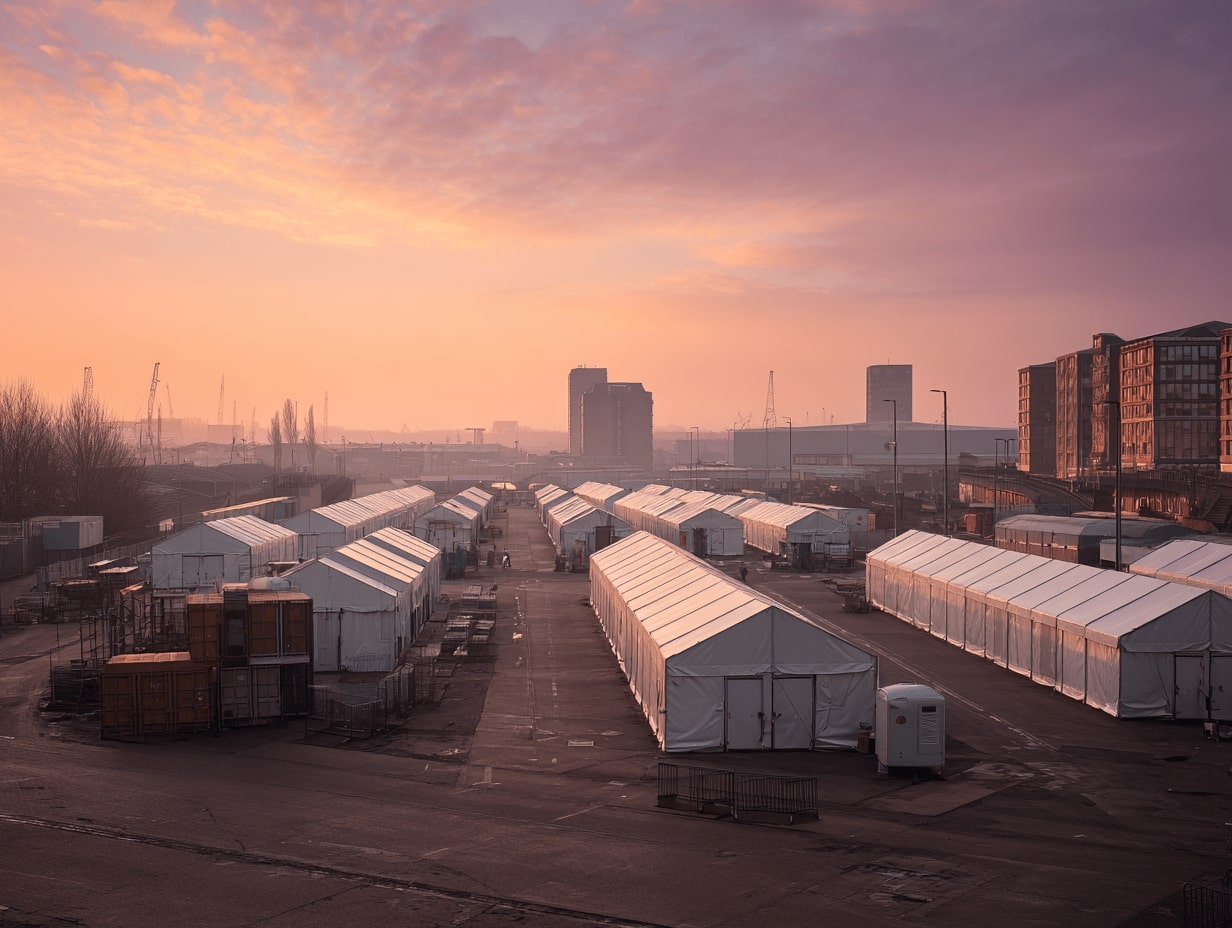
Table of Contents Show
We’ve all felt it: that tug of curiosity when a pavilion pops up in a park or a glowing installation reshapes a familiar street. The beauty of temporary buildings isn’t just in their looks, it’s in the way they compress ambition, sustainability, and cultural energy into a short-lived moment. In this piece, we explore how temporary architecture delivers design quality fast, creates place and community, and proves that sustainability can be an aesthetic, not just a checkbox.
The Allure of the Temporary
Temporary buildings carry a special voltage. They invite us in because they’re here now and gone soon, igniting urgency and delight. We respond differently to a structure when we know it’s ephemeral: we savor it, share it, and let it reshape our mental map of a place.
That impermanence also loosens the rules. We can test ideas, break typologies, and prototype public space without the weight of decades-long commitments. From seasonal markets and art pavilions to emergency shelters and pop-ups, the best temporary architecture is both nimble and memorable, proof that speed and beauty can coexist.
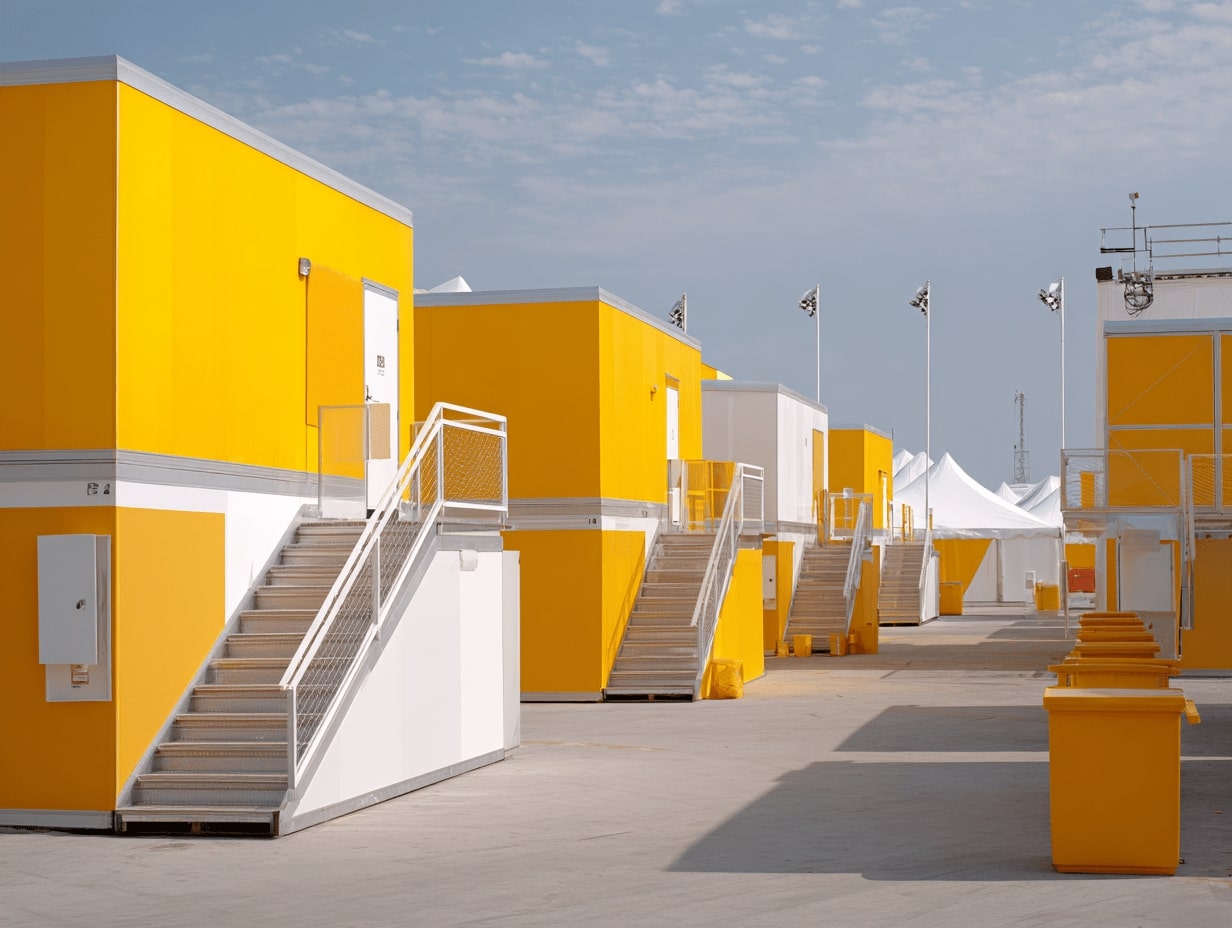
Design Principles for Ephemeral Beauty
Lightness and Transparency
We gravitate toward structures that look like they could lift off. Slender frames, tensile membranes, and clear polycarbonate or ETFE let light pour through while maintaining strength. When we reduce visual mass, we heighten presence, counterintuitive but true. A lightweight canopy can feel more monumental than a heavy wall if it catches daylight and breeze.
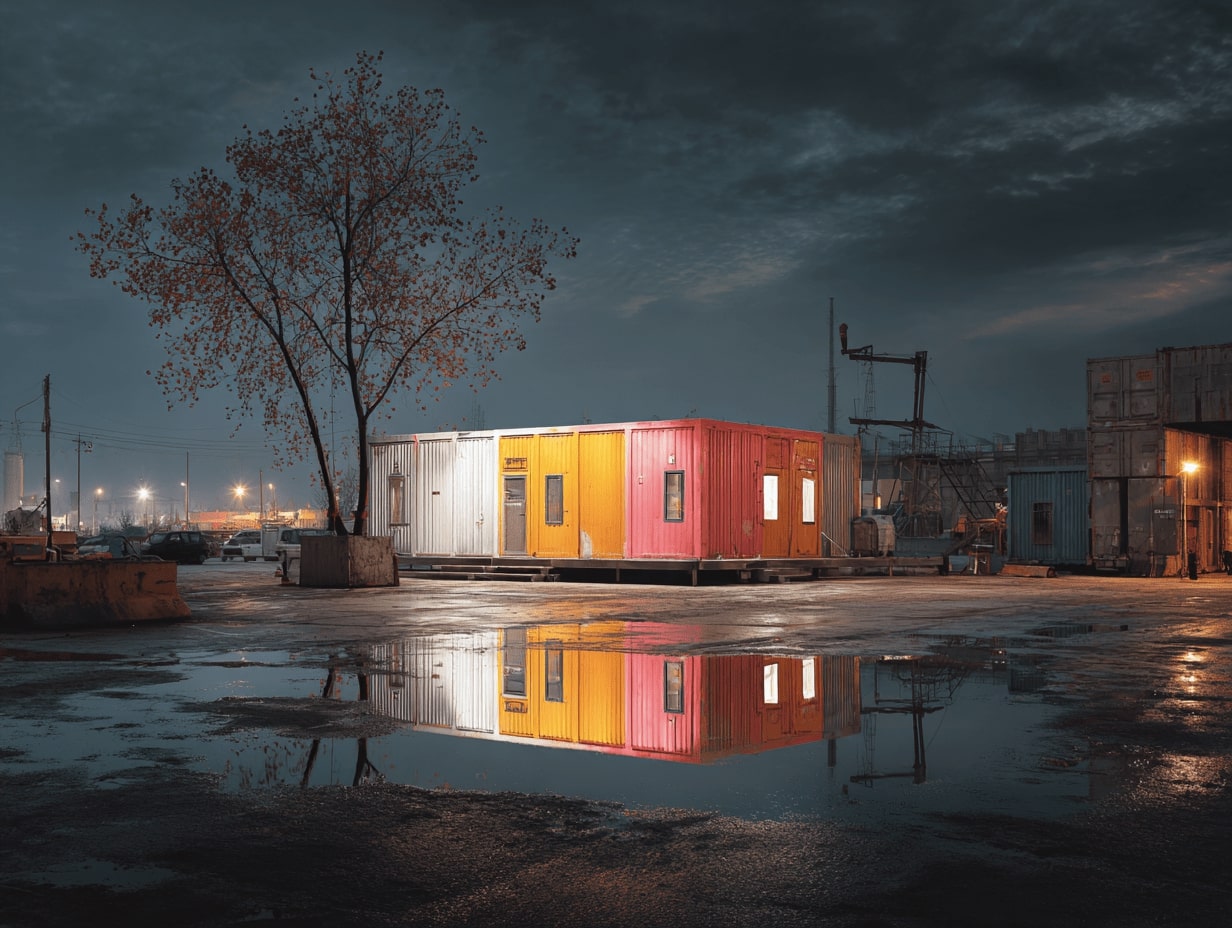
Proportion, Rhythm, and Flow
Even the quickest builds need good bones. We aim for simple grids, repeatable modules, and legible rhythm so people intuit how to move and gather. A consistent bay, say, 3 meters, keeps layouts flexible for seating, kiosks, or exhibits. Clear entries, sightlines, and a gentle sequence from threshold to heart make small footprints feel generous.
Sensory Details: Light, Sound, and Tactility
Temporary doesn’t mean thin on experience. We tune acoustic panels to cut chatter in busy markets, add perforations to break wind and shape sound, and use textured, hand-pleasing finishes on touchpoints. Warm LEDs at 2700–3000K, paired with bounce lighting off light fabrics or pale timber, create instant hospitality. Subtle cues, like a soft mat at entry or a cedar handrail, ground the fleeting in memory.
Materials and Methods That Look Good and Go Fast
Reusable Systems and Modular Kits
Speed comes from smart repetition. We like aluminum truss, scaffold, and modular timber frames that assemble with simple connectors and standard fasteners. Panelized wall kits with integrated doors/windows shorten install time. Floor systems on adjustable pedestals level uneven sites without pours, and everything packs flat for the next venue.
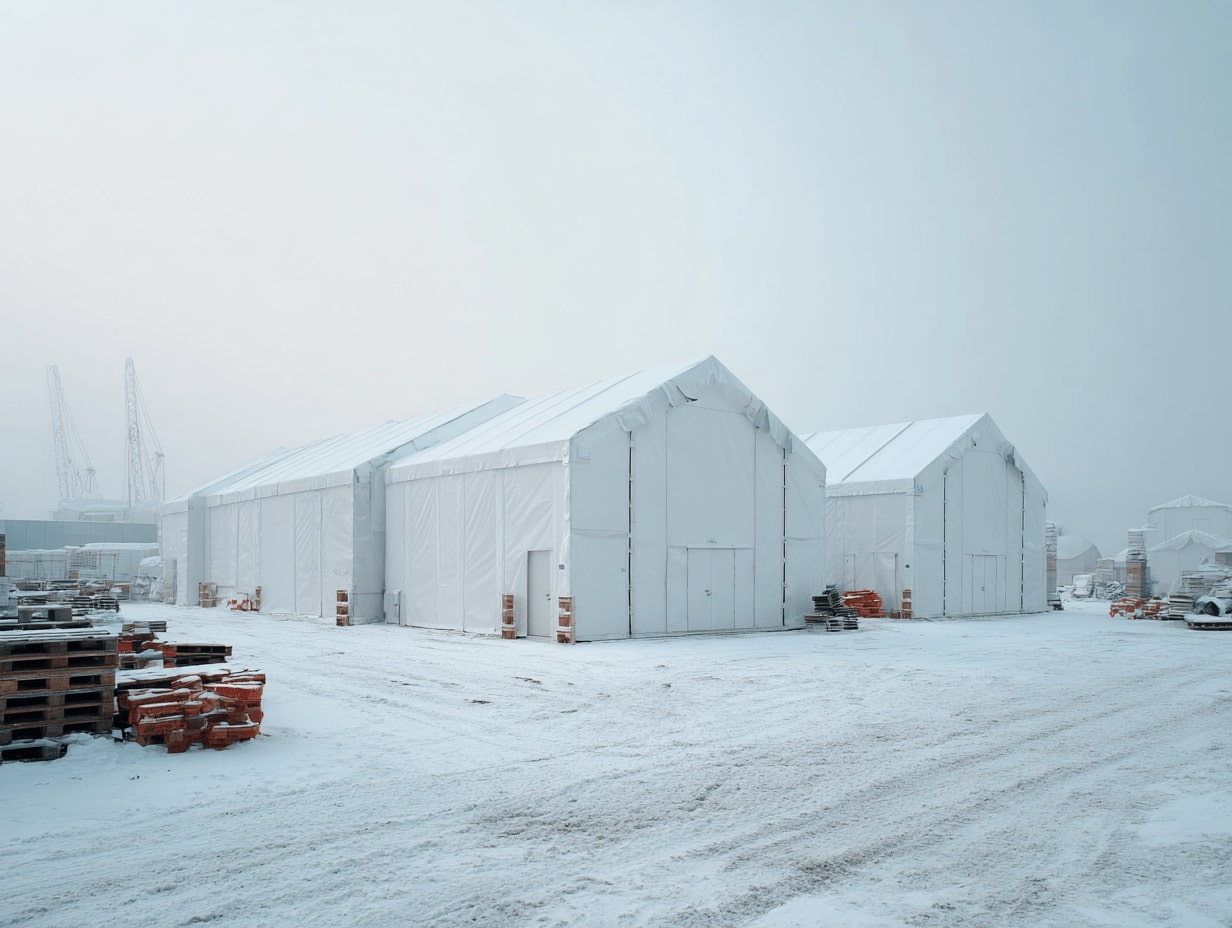
Bio-Based, Recycled, and Low-Impact Options
Beauty and responsibility align when materials tell a low-carbon story. Cross-laminated timber offcuts, laminated bamboo, cork, recycled aluminum, and paper-based honeycomb panels all perform well and look great. Fabrics? Recycled PET meshes and sail-grade textiles stretch, glow, and resist weather. Where fire codes allow, clay plasters and plant-based coatings add depth with negligible VOCs.
Place-Making and Culture in the Short Term
Contextual Fit and Community Storytelling
We start with what’s already there: wind, shade, desire paths, and the neighborhood’s voice. A pop-up market that echoes local roof pitches or colors immediately feels rooted. Invite nearby artists to co-create graphics or wayfinding: a single mural band can stitch stalls together and carry a shared story.
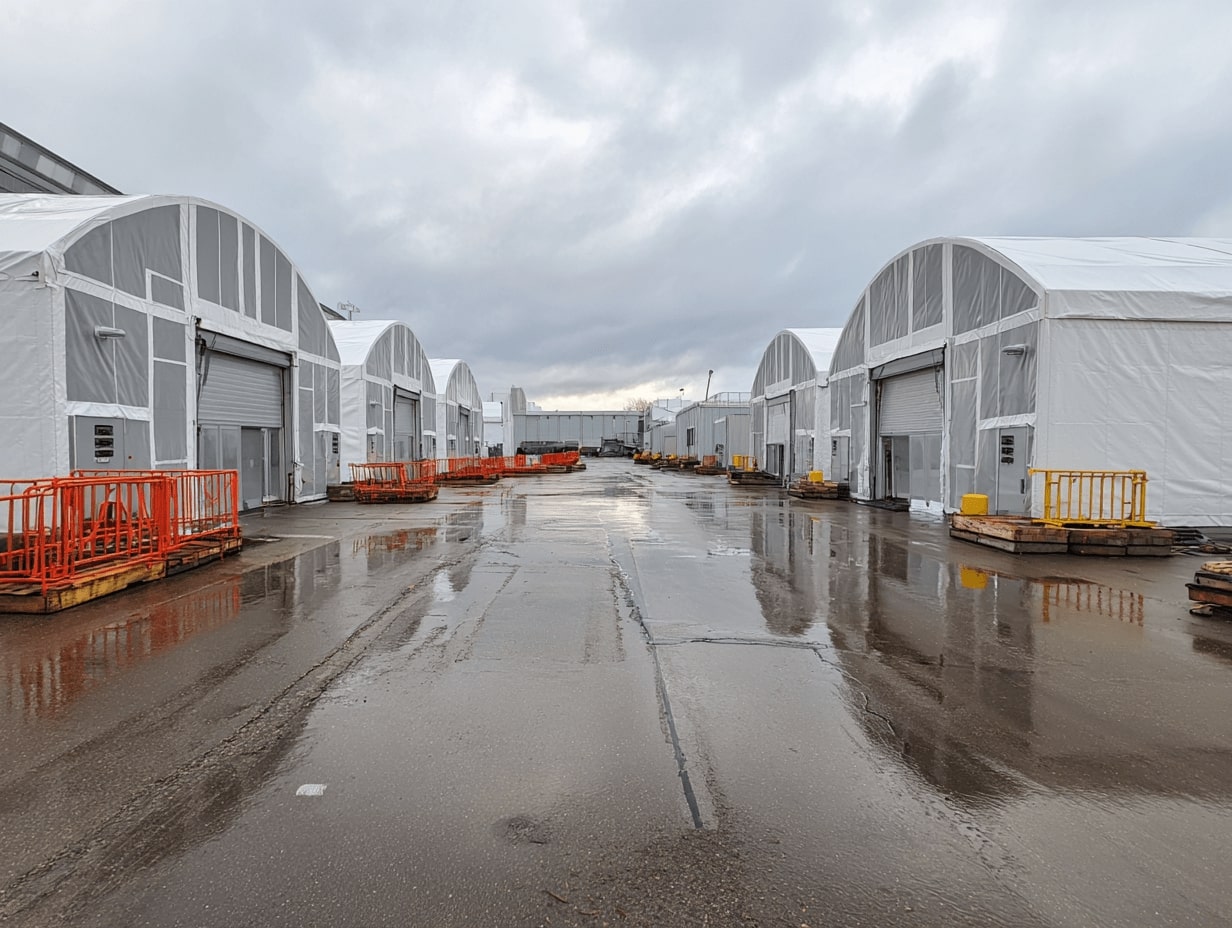
Nighttime Identity and Media
After dark, temporary buildings earn a second life. Backlit textiles, addressable LEDs, and projection mapping let us shift mood without new hardware. Screens aren’t mandatory, often a subtle light wash and a few focused accents on thresholds, signage, and canopy undersides are enough to make the structure photograph beautifully and travel across social feeds.
Sustainability as an Aesthetic
Design for Disassembly and Reuse
We treat every joint like a future decision point. Bolted, clipped, and pegged connections simplify teardown and keep components intact for the next build. Labeling parts, keeping fasteners common, and publishing a simple assembly guide turn disassembly into choreography rather than demolition.
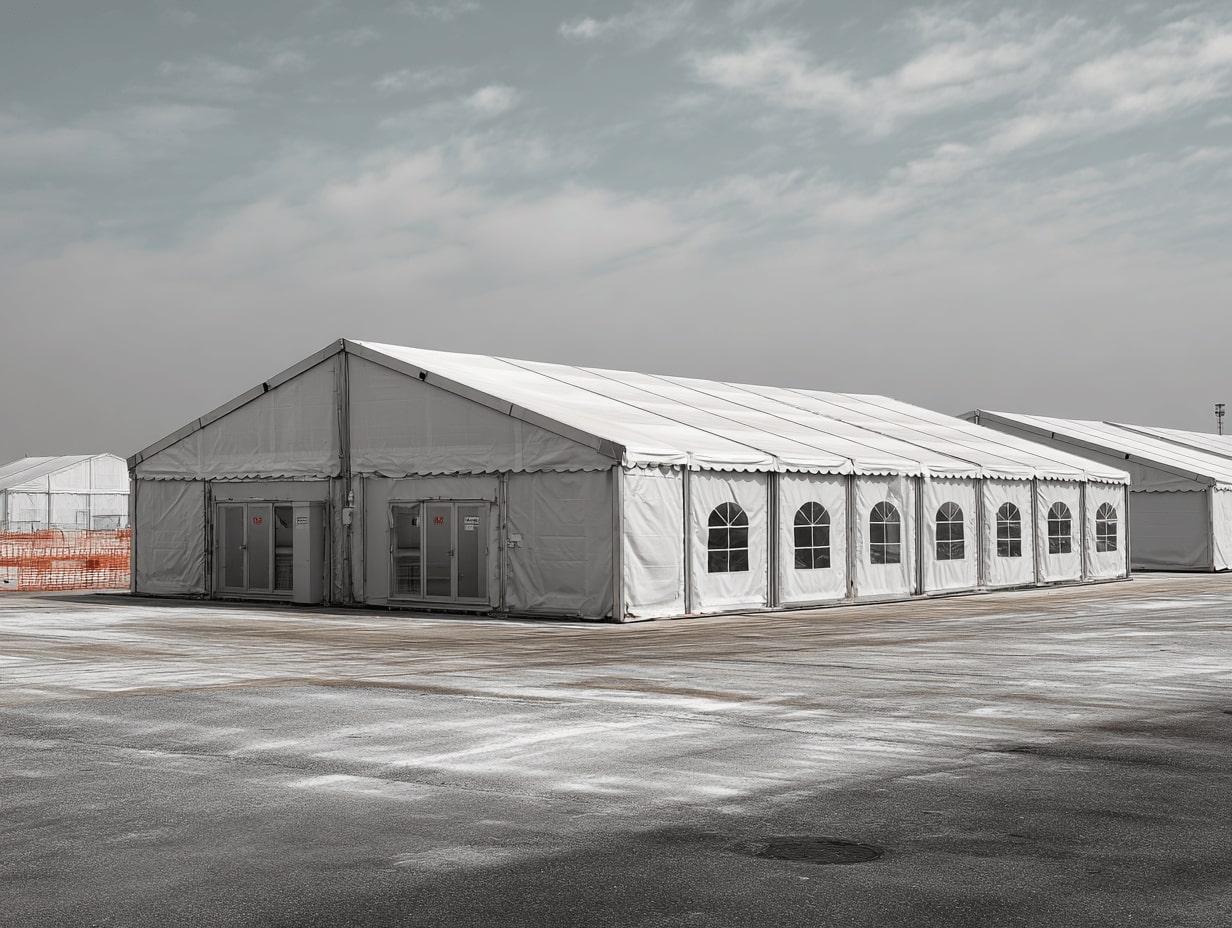
Logistics, Waste, and Carbon
The greenest kilo is the one we never ship. We design to pallet sizes and standard truck widths, minimize unique parts, and source regionally when possible. Offcuts become shelves, plinths, or acoustic baffles. Clear waste streams, timber to reuse, metals to scrap, fabrics to take-back programs, cut landfill and make the environmental logic legible to visitors.
Exemplars and Practical Takeaways
Pavilions and Installations
Think of seasonal pavilions that transform parks into cultural magnets. We’ve learned from these: keep structure legible, embrace a single strong idea (a spiral ramp, a hovering canopy, a mirrored court), and let materials do double duty, sunshade by day, lantern by night. Practical takeaway: choose one formal move and make everything else support it.
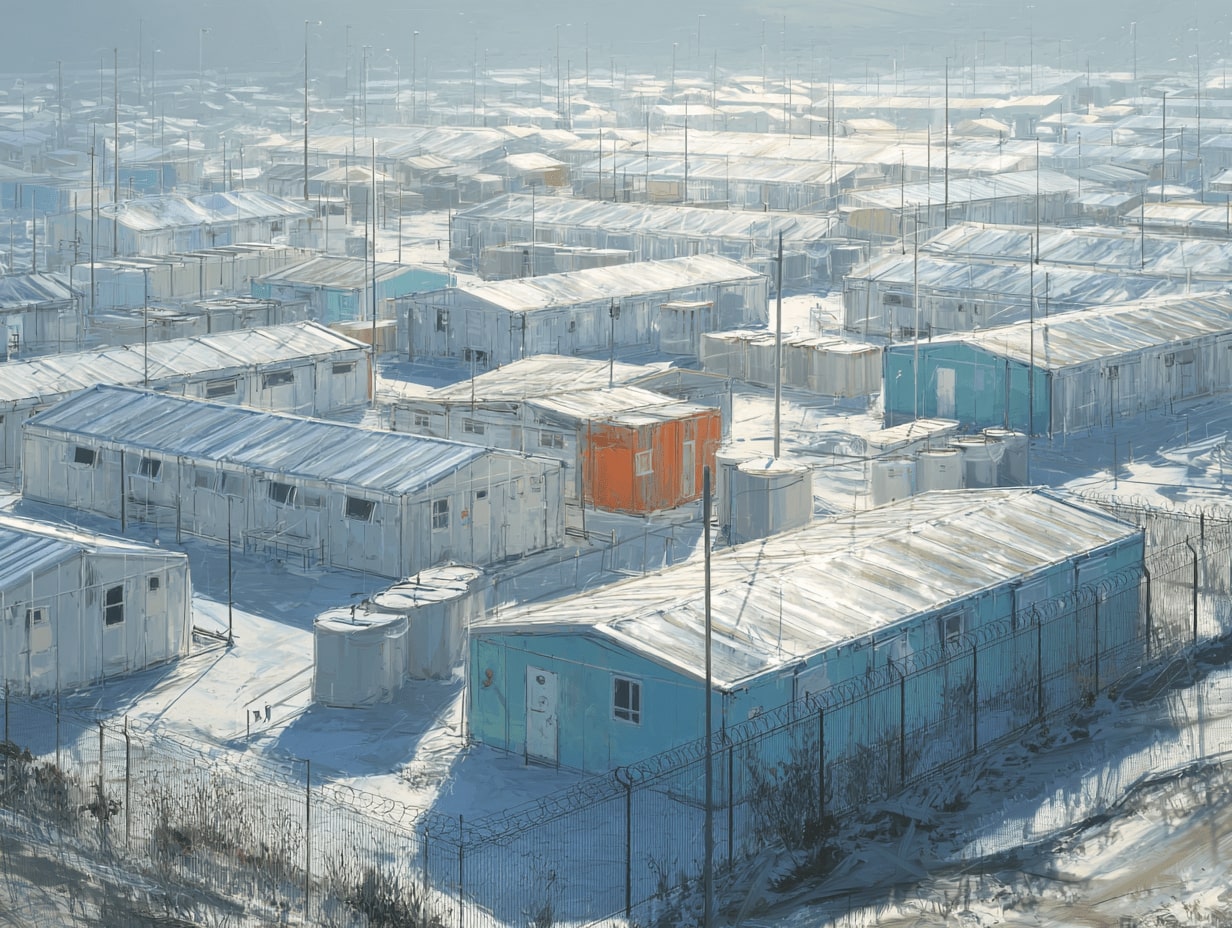
Relief and Community Structures
In crises, temporary buildings can be dignified, fast, and beautiful. Paper-tube frames, modular timber boxes, and fabric membranes create clinics and shelters in days. Privacy, light, and airflow matter: so do colors that calm rather than shout. Practical takeaway: prioritize human basics, orientation, shade, hygiene, then add small moments of delight, like a shaded bench or a view slot.
Pop-Ups and Events
Retail and food pop-ups thrive on agility. A kit of parts, folding counters, clamp-on signage, magnetic shelves, lets us adapt to wildly different storefronts. Power management (battery packs, LED task lights) keeps cabling tidy. Practical takeaway: build a branded core set, then localize with graphics, plants, and a single tactile material to avoid visual clutter.
Conclusion
The beauty of temporary buildings lives in their urgency and generosity. When we design lightly, build quickly, and leave gracefully, we prove that architecture can be experimental, sustainable, and deeply human, all at once. Let’s keep iterating in public, learning from each pop-up and pavilion, and making short-term places that leave long-term goodwill.
- adaptive architecture
- Architectural Innovation
- art installations
- contemporary temporary buildings
- Ephemeral architecture
- flexible building design
- modular buildings
- modular event structures
- pop-up structures
- Portable Architecture
- short-term construction
- sustainable temporary buildings
- temporary architecture
- temporary buildings
- temporary event spaces
- temporary exhibition venues
- temporary office spaces
- temporary retail spaces
- temporary shelters
- transient architecture
Submit your architectural projects
Follow these steps for submission your project. Submission FormLatest Posts
Busan Opera House by Snøhetta: A Waterfront Cultural Landmark Nearing Completion
Snøhetta's Busan Opera House transforms reclaimed waterfront land into a democratic cultural...
Drones in Modern Construction: Redefining Site Analysis and Architectural Control
Drones are reshaping modern construction by offering architects new ways to observe,...
Overcoming Industrial Construction Challenges
Table of Contents Show Start With Risk-First Planning, Not Wishful SchedulingProtect Safety...
The Role of Insurance in Building a Resilient Construction Business
Table of Contents Show Contract Works Insurance: Protects materials and work in...


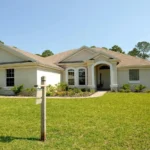








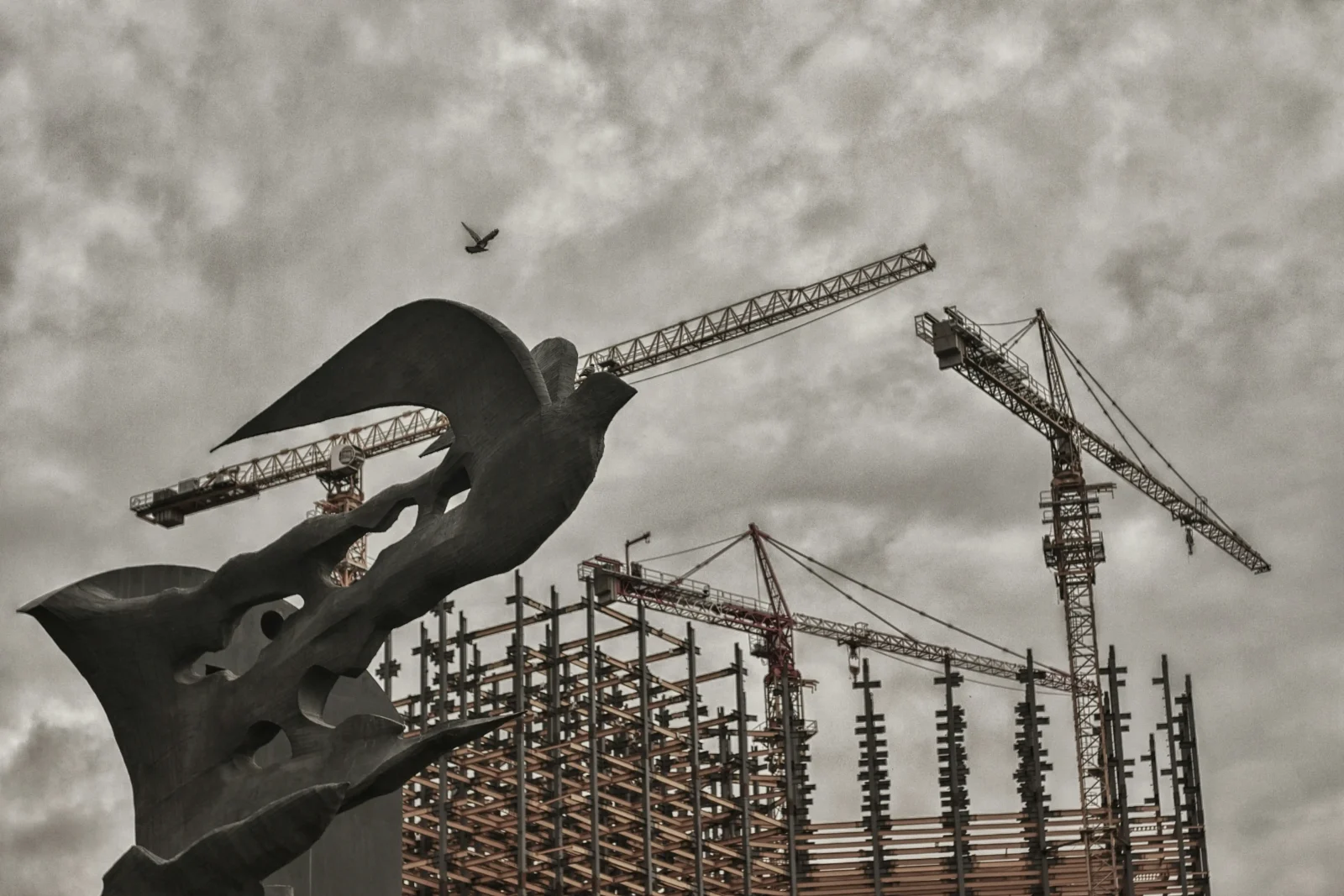
Leave a comment